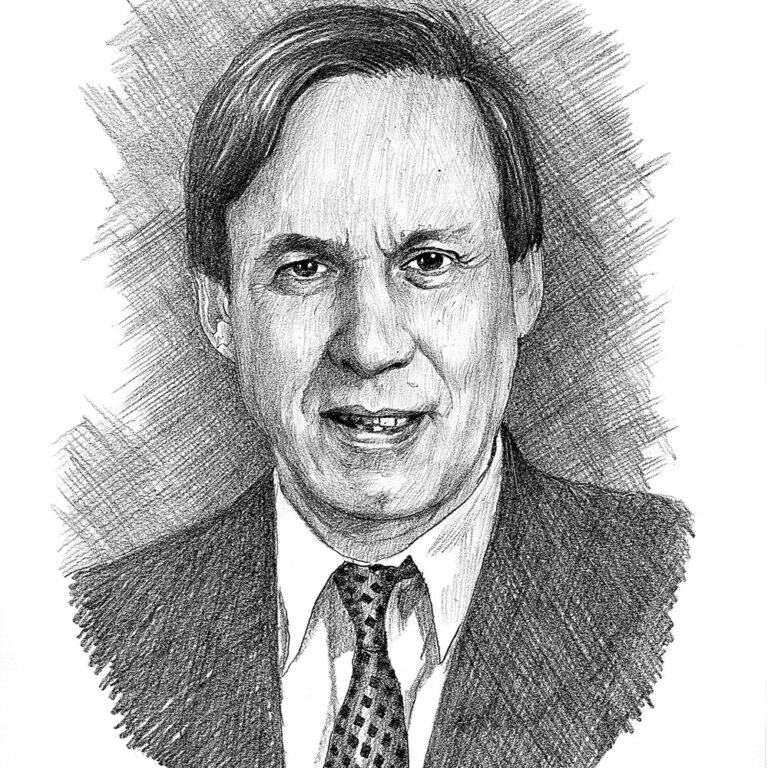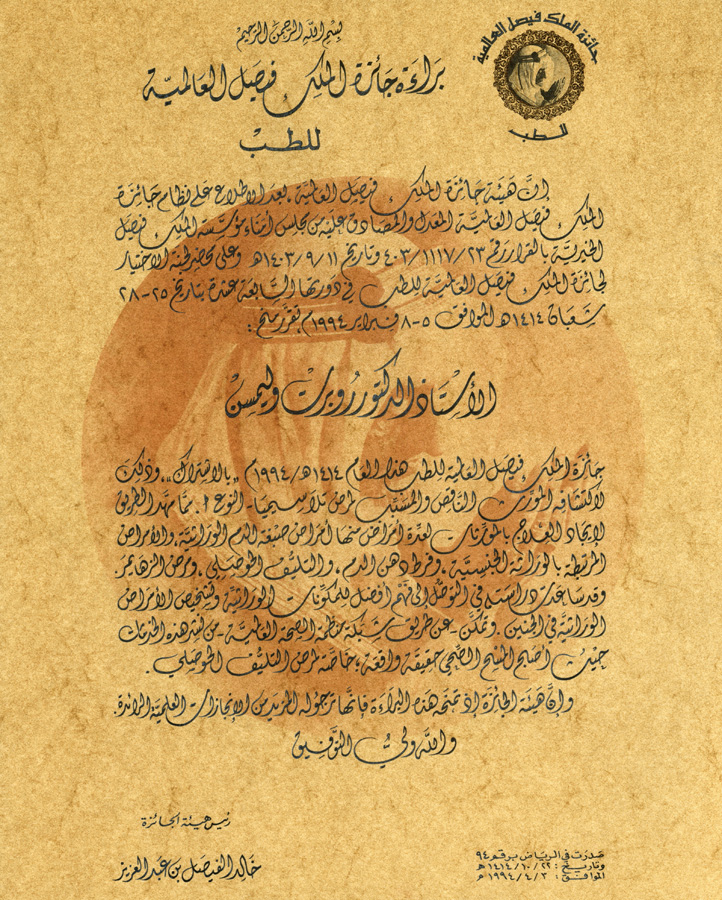

Professor Robert Williamson
King Faisal Prize in Medicine 1994 Laureate
Topic: "Medical Applications Of Genetic Engineering"
At my first lecture, there were four people in the audience. It was thought that genetics could apply to bacteria or to plants, but that humans were too difficult to analyze

Robert Williamson obtained his B.Sc. in chemistry in 1959 and his M.Sc. (1960) and Ph.D. (1963) in biochemistry from the University College, London. He spent the following 13 years teaching at the University of Glasgow, where he studied the control of gene expression in mammalian chromatin, and led molecular genetics at the Scottish Cancer Research Institute. He also spent one year as a Senior Research Fellow at the Department of Embryology in Carnegie Institute in Washington. He was appointed Visiting Professor at Columbia University in New York, and at the University of Otago in New Zealand. In 1976, he was appointed Professor and Head of the Department of Molecular Genetics and Biochemistry at St. Mary’s Hospital Medical School in London. He is a Founding Member of the Human Genome Organization.
Professor Williamson is an international authority in the field of human molecular genetics and its applications in medicine. His discovery that alpha thalassemia was caused by a single gene deletion was the first demonstration of an inherited disease at the DNA level. This work was instrumental to subsequent discoveries and potential cure of hereditary disorders caused by single gene dysfunctions. It was followed by the cloning of the human globin genes by Williamson and his group, and thereafter by their establishment of the first DNA linkage for Duchenne muscular dystrophy, then that of Friedreich ataxia and other conditions. Williamson and his group were also the first to develop a probe for cystic fibrosis which could be employed for screening this disease on a community basis. This concept is now universally applied. They also demonstrated the existence of a gene mutation in the familial type of Alzheimer’s disease. Williamson also examined some polygenic diseases such as “early onset coronary heart disease” where a number of defined loci probably determine most of the pathology associated with this condition.
Professor Williamson’s outstanding contributions to the fields of molecular and medical genetics were published in hundreds of scientific papers and presented in a large number of invited and honorary lectures in major universities and research centers in Europe and the USA. He is an honorary member of Fellow of the Royal Colleges of Physicians of Edinburgh, Fellow of the Royal College of Pathology, and a member of the European Organization for Molecular Biology.
Professor Williamson received several other prizes, as well as an Honorary Doctorate Degree in Medicine from the University of Turku in Finland.
This biography was written in the year the prize was awarded.
- He held several positions including:
- Professor of Preventive Medicine and Professor of Medical Genetics at Melbourne University.
- Director of Murdoch Children Research Institute in Melbourne, Australia
- Founding member of the European Human Genome Organization.
- Secretary for Science Policy at the Australian Academy of Science thereafter in 2004.
- He received many honors including:
- Fellowship of the Royal Society of London.
- Honorary Fellowship of the Royal College of Physicians London and Australia.
- Fellowship of Australian Academy of Science.
- Fellowship of the UK Academy of Medical Sciences.



